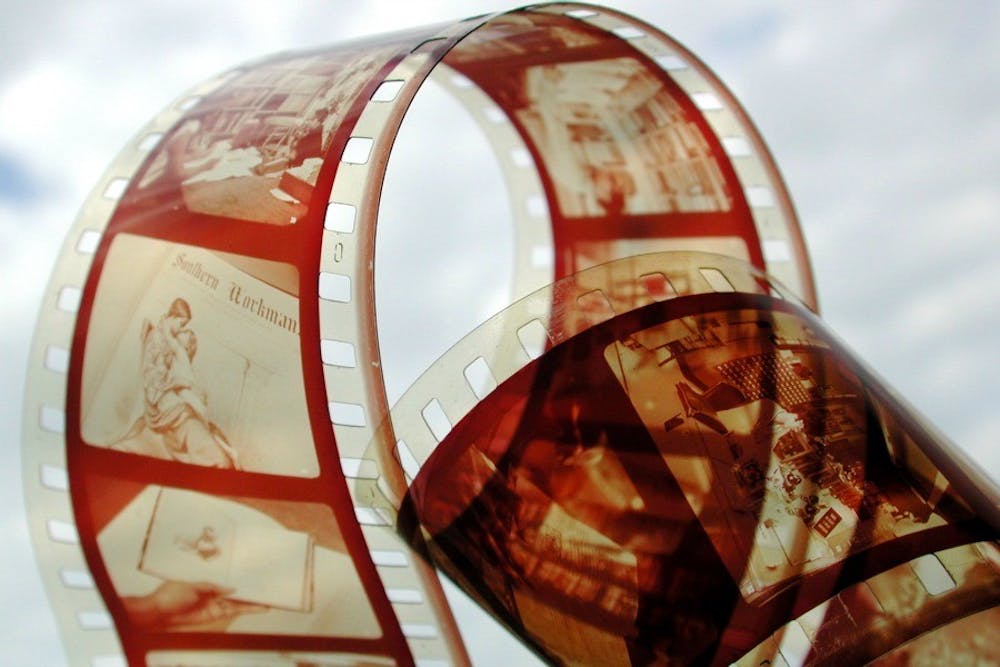Just about everything you might expect to be annoying about an animated, 19th-century film about dueling Parisian child ballerinas cripples "Leap!" It's essentially a Barbie movie with twice the budget, worse characters and even less plausibility (but better pop songs.)
Theoretically, the film should soar; aside from "Dance Moms" sensation Maddie Ziegler, the cast features Elle Fanning, Mel Brooks and even Kate McKinnon. It's also not lacking visually; "Leap!" offers a stunning reimagining of Paris 100 years ago. But the film, beyond a surface level, is a frenzied mess.
Fanning voices Felicie, a young girl living in an 1880s French orphanage, who escapes with her pal Victor (Nat Wolff). They head to Paris to fulfill their dreams of becoming a world-renowned ballerina and inventor, respectively, but are soon separated.
Victor wanders into a job with Gustave Eiffel, naturally, and with some scheming, Felicie takes the spot of bratty student Camille (Ziegler) at the Paris Opera Ballet. She finds herself vying for a spot in the Ballet's production of "Swan Lake," with one problem -- she doesn't know how to dance. Current maid and former dancer Odette (Carly Rae Jepsen) steps in as her mentor, but Felicie still has to contend with the competition, being apart from Victor for the first time and, above all, the fact that she can't dance.
"Leap!" is allegedly set in 1886 or 1887, but uses late-19th-century Paris as little more than an aesthetic background. Younger viewers will likely be unaffected, but there's no reason an animated film can't also be historically accurate; this one seems to go out of its way to flaunt as many factual errors as possible.
Most egregious is Felicie's prancing around for much the film in high-waisted denim shorts, knee socks and combat boots; she looks fresh out of a 2009 Delia's catalogue, not an orphanage in 19th-century France. While "Leap!" is correct in presenting a Statue of Liberty under construction, the Eiffel Tower (a focal point of the film) wasn't even started, much less half-finished, and its references to the Quebec flag, Sherlock Holmes and motorcycles are years ahead of their time.
This may not be quite so off-putting if the rest of the film were inventive and enjoyable, or even cohesive, but it moves too quickly and predictably, with little payoff.
"Leap!'s" premise isn't a terrible one, but in execution, it's a disappointing jumble that disregards its enormous behind-the-scenes talent. Odette is the film's only remotely intriguing character, but rather than utilize Jepsen's voice, the Tchaikovsky-heavy soundtrack is bolstered with a bizarre mix of hits by the likes of Demi Lovato and Britney Spears.
It's also a step down for Fanning, who recently killed it in "The Beguiled" and, before that, "20th Century Women," and not doing Ziegler, who's actively trying to break into film acting, any favors. There is some delightful irony to be found in "Leap!" for "Dance Moms" fans or anyone who's seen a Sia music video, however -- Ziegler's character (spoiler alert) suffers from what the Ballet deems a lack of passion for dance.
One has to suspend a certain amount of belief to watch an animated film (or any film, for that matter), but "Leap!" asks for too much. Just as watching "High School Musical" as an adult leads me to root for Sharpay, "Leap!" begs the question: why is a girl, however well-intentioned, allowed to stumble into one of the world's premier ballets and seriously vie for a role in "Swan Lake," despite not knowing what a plie is?
This film wants to believe its message to its young, target audience is to believe in yourself and not give up on your dreams, a la "Moana," "Tangled," "Chicken Little," etc., but it seems to encourage viewers that if you want something, take it, and don't worry about who you might hurt in the process.
If you're looking for dance-related entertainment but aren't feeling the intensity of "Black Swan," dive into "Barbie and the 12 Dancing Princesses" or the second season of "Dance Moms" instead.
Enjoy what you're reading?
Signup for our newsletter
2/5 stars




